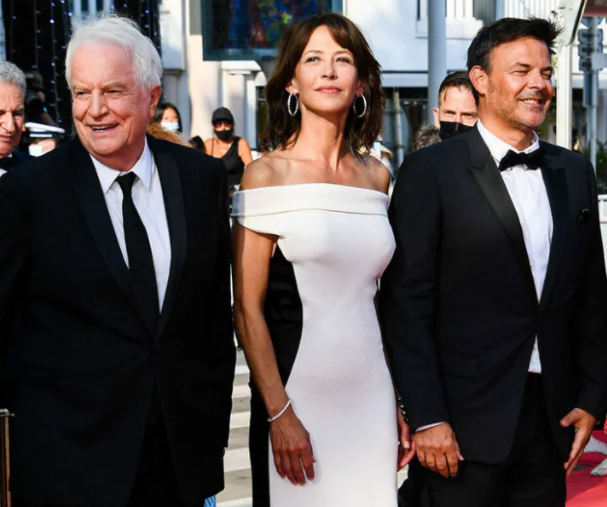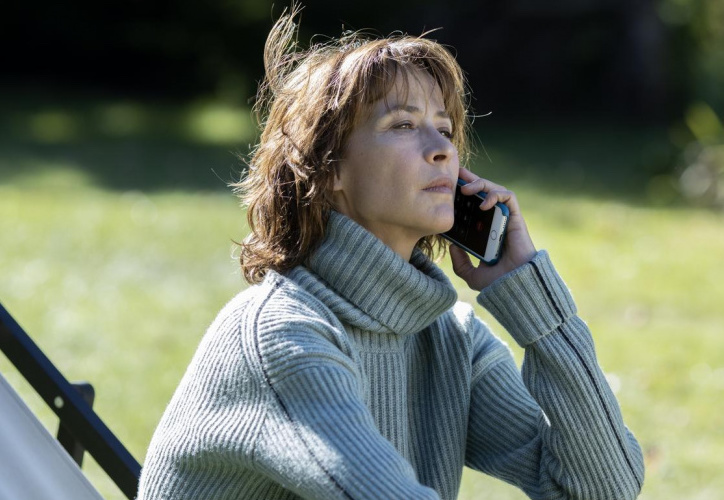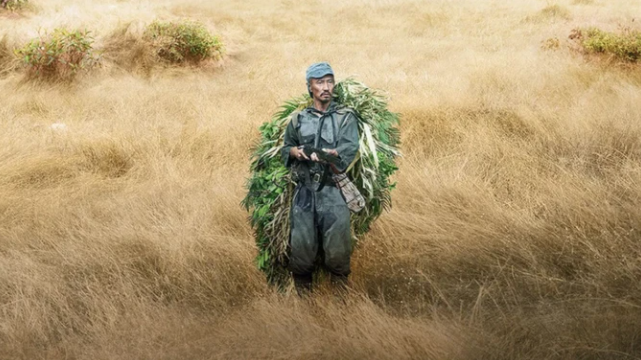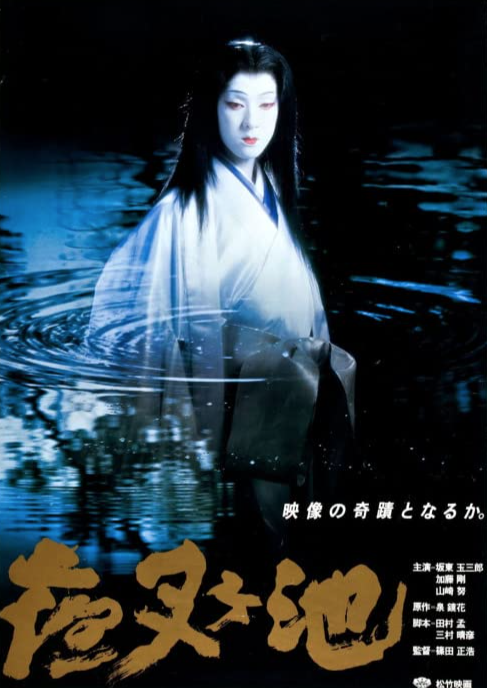by Elisa Giudici
 At the premiere of "Everything Went Fine"
At the premiere of "Everything Went Fine"
The Festival has really begun and I finally discovered where the press room is inside the enormous Palais. Free coffees and soft drinks for journalists are a treat I never experienced at other festivals (so I'm feeling spoiled). The room is lovely with its wooden tables and cream colored seats with a view on the blue sea. The day after Annette, it's still the first question everyone asks: do you like it or not? I've already had interesting discussion about the movie with a couple of colleagues. I am really curious to see how it will be received by broader audience after the "festival bubble" ends.
But on to the day two screenings...

Everything Went Fine / Tout S'est Bien Passé (François Ozon)
COMPETITION LINEUP
I have a soft spot for Ozon, a queer director who has proved his versatility and skill many times over. He lacks that killer hit to enter world cinema's GOAT territory and Tout S'est Bien Passé is clearly not that movie...again. Yet it's another fine example of his small yet perfect movies so I hope one day he gets the respect he deserves.
Based on the memoir of Emmanuèle Bernheim, it's a touching story of a father who wants to die and two sisters who reluctantly help him do so. There is so much room for drama and easy emotional manipulation here, yet Ozon delivers an essentially quiet, almost spiritual take on the matter. He leaves the audience room for their own feelings and to make their own determinations about euthanasia.
Like his previous picture Grace a Dieux, this new film shows the current maturing evolution in Ozon's sensibility, more minimalistic and realistic yet closer to the spiritual sphere. The shot compositions and limited camera movements help the actors shine. Sophie Marceau's performance will surely have people talking - no one was expecting such a rich range of emotions from her - maybe not even co-stars André Dussollier and Charlotte Rampling!

Onoda, 10,000 Days in the Jungle (Arthur Harari)
UN CERTAIN REGARD
The audience cheered director Harari like an hero. The 40 year-old French director has exceeded expectations with his sophomore feature, a true story about the double edged sword of Japanese honor. Onoda is a Japanese soldier dispatched on Libang island during World War II who was convinced the war was still going, and fighting against "donkos" until 1974, waiting for his superiors to come back and give him new orders. Beautifully shot in the Philippines, Onoda is a cautionary tale on how people can go to the extreme to rename and reshape their world to give it meaning and meet someone else expectations. I really liked the ensemble cast, too, led by Yuya Endo and Kanji Tsuda as the soldier at different ages. Harari has such a soft touch as a director that he is able to make his protagonists both heroic and miserable, showing their messiness and weaknesses without stripping their humanity and honor. This reminded me of Da 5 Bloods in a couple of ways but I found it stronger.
 Yasha-ga-ike (1979, Masahiro Shinoda)
Yasha-ga-ike (1979, Masahiro Shinoda)
CANNES CLASSICS
I could go to sleep before midnight or try to see a gem from the "Cannes Classics" selection: I choose Masahiro Shinoda over sleep and I am so glad I did. Yashagaike combines an ancient legend of a dragon who sleeps under a mountain lake with a tragic story of a small village where superstition and patriarchy make the life of Yuri, a delicate maiden, really miserable. "This 1979 movie has such a Criterion Collection vibes" is the most honest review I can give you. I expecially love the special effects (made by the same crew that worked on some of the Godzilla movies) and Tamasaburo Bando's portrayal of the female protagonist. He was a kabuki onnagata performer (male actors specializing in female roles) and you can really understand why he was legendary in his field in this movie. One small scene in particular, an almost-kiss between Yuri and her lover Akira, is so virginal and yet so sensuous. It summarize Shinoda's sensibility, which can range from brutal violence to pure love.